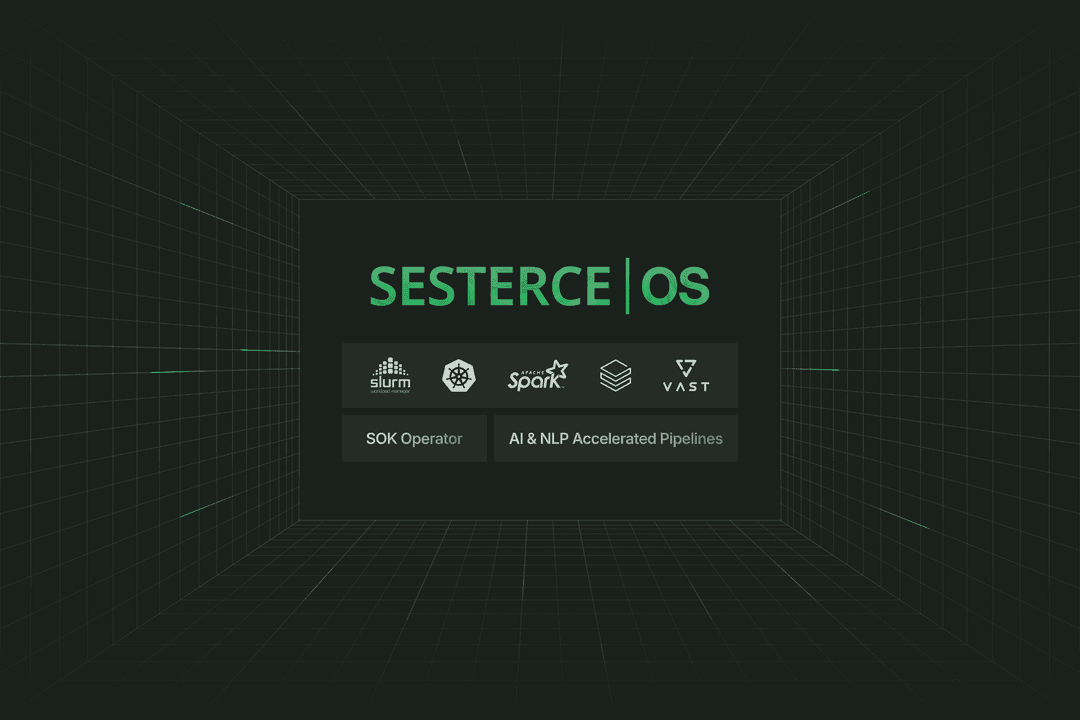How AI streamlines drug discovery: a practical guide for Health and Pharmaceuticals
AI is accelerating drug discovery—cutting costs, reducing timelines, and improving success rates.

Drug discovery is a cornerstone of the pharmaceutical industry, yet it’s often a long and costly process. On average, developing a single drug costs $2.6 billion and spans up to 10 years. These challenges are compounded by rising data complexity and high failure rates in clinical trials.
Artificial intelligence (AI) is revolutionizing this landscape. By leveraging high-performance computing (HPC) and advanced AI algorithms, pharmaceutical companies can identify viable compounds, streamline clinical trials, and bring life-saving treatments to market faster.
In this guide, we’ll explore:
- How AI transforms drug discovery workflows
- A practical roadmap for integrating AI into your processes
- The business benefits of adopting AI-powered solutions
Challenges in Traditional Drug Discovery
Pharmaceutical companies face several roadblocks in traditional R&D workflows:
Massive Data Volumes
- Genomic sequencing, molecular simulations, and clinical trial data require immense computational resources
- Manually analyzing these datasets slows innovation
High Failure Rates
- Over 90% of drug candidates fail in clinical trials, wasting resources and time
Lengthy Timelines
- With multi-phase testing and regulatory hurdles, drugs often take years to reach patients
How AI is Transforming Drug Discovery
1. Accelerating Target Identification
AI models analyze genetic, proteomic, and clinical data to identify promising drug targets quickly. By automating data analysis, AI reduces months of manual research to weeks.
Example: A pharmaceutical company used AI-powered HPC to analyze genetic markers and identified a high-potential cancer target in days, cutting R&D timelines by 70%.
2. Optimizing Lead Compounds
AI simulates molecular interactions to predict efficacy and safety, eliminating much of the trial-and-error traditionally required in lead optimization.
Example: Using machine learning, a biotech startup improved lead compound success rates by 30%, significantly reducing preclinical costs.
3. Streamlining Clinical Trials
AI helps match patients to trials based on genetic or demographic criteria and monitors trial data in real-time for improved outcomes.
Example: A global pharmaceutical firm reduced patient recruitment time by 40% using AI-driven analytics, accelerating its Phase II trials.
A Step-by-Step Roadmap to AI Integration
Step 1: Start Small with Pilot Projects
- Begin with accessible platforms like Sesterce GPU Cloud to experiment with AI applications.
- Focus on one key area, such as target identification or lead optimization.
Step 2: Build Scalable Infrastructure
- Invest in scalable computing solutions like Sesterce Private AI, designed to grow with your needs.
- Ensure your infrastructure supports dynamic workloads and real-time processing.
Step 3: Upskill Your Teams
- Provide training in AI frameworks like TensorFlow and PyTorch.
- Foster collaboration between data scientists and R&D teams for maximum impact.
Step 4: Prioritize Compliance and Security
- Ensure all AI tools meet regulatory standards like GDPR for data privacy.
- Use infrastructure with advanced monitoring and disaster recovery features to safeguard sensitive data.
Step 5: Monitor Performance Metrics
- Measure the ROI of AI projects by tracking KPIs like reduction in R&D timelines, cost savings, and improved trial success rates.
The Business Benefits of AI in Drug Discovery
1. Faster Time-to-Market:
AI accelerates every phase of drug discovery, enabling companies to bring treatments to patients faster.
2. Cost Efficiency:
By optimizing workflows and reducing preclinical failures, AI dramatically lowers the overall cost of development.
3. Enhanced Precision:
AI’s predictive capabilities lead to better decision-making, reducing wasted resources and improving trial outcomes.
4. Competitive Advantage:
Pharmaceutical companies leveraging AI can stay ahead of competitors by delivering innovative treatments more efficiently.
Real-World Example: AI-Driven Success in Oncology
A biotech startup focused on oncology used HPC-enabled AI to screen millions of compounds for potential cancer treatments. The results:
- 50% Faster Discovery: Compound screening timelines dropped from 12 months to 6 months.
- 30% Cost Reduction: AI reduced trial-and-error, saving significant resources.
- 20% Higher Success Rate: AI identified viable candidates with improved accuracy compared to traditional methods.
AI is reshaping drug discovery, offering a powerful solution to the challenges of cost, time, and complexity. For pharmaceutical companies, adopting AI isn’t just an opportunity—it’s an imperative to stay competitive in a fast-evolving industry.
By starting small, investing in scalable infrastructure, and prioritizing compliance, organizations can unlock the full potential of AI and deliver groundbreaking treatments to patients faster.
▶️ Discover how Sesterce can accelerate your AI journey
Explore our Latest Posts

Sesterce unveils a high-performance AI supercomputer with NVIDIA in Digital Realty’s Marseille data center
What Companies
Build with Sesterce.
Leading AI companies rely on Sesterce's infrastructure to power their most demanding workloads. Our high-performance platform enables organizations to deploy AI at scale, from breakthrough drug discovery to real-time fraud detection.
Health
Accelerate drugs recovery
Finance
Improve risk analysis and fraud detection
Consulting
Analyze market trends and provide strategic insights.
Logistic & Transports
Predict freight flow analysis, route optimization and fleet maintenance
Energy and Telecoms
Optimize performance, improve coverage and reduce downtime
Media & Entertainment
Personalize your content by analyzing consumer preferences.
Supercharge your ML workflow now.
Sesterce powers the world's best AI companies, from bare metal infrastructures to lightning fast inference.



